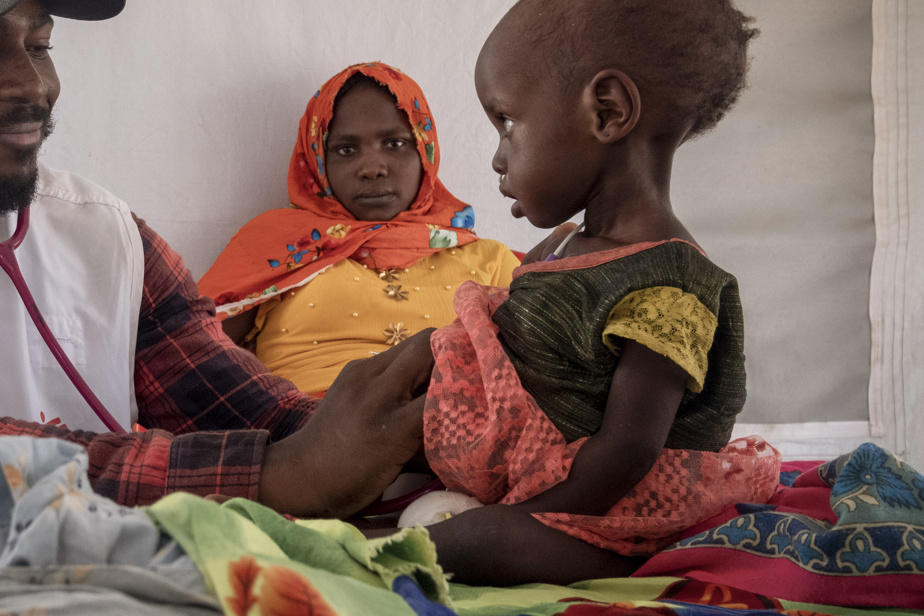(Port Sudan) Some 25.6 million people, more than half of Sudan’s population, face “acute food insecurity” due to the conflict ravaging the northeast African country, a UN-backed report said Thursday.
According to projections from the Integrated Food Security Classification Framework (IPC) report, which UN agencies rely on, this figure includes “more than 755,000” Sudanese facing “starvation”, the highest level high on the IPC scale.
Furthermore, more than 8.5 million people are in an “emergency” situation, the last level before famine.
Since April 2023, a war has been raging between the army, led by General Abdel Fattah al-Burhane, and the paramilitaries of the Rapid Support Forces (RSF) of his former deputy, General Mohamed Hamdane Daglo.
It left tens of thousands dead and displaced more than nine million people, according to the UN.
“Fourteen months of conflict have plunged Sudan into the worst levels of food insecurity ever recorded by the IPC in the country,” said the report released Thursday.
The two belligerents use “hunger as a weapon of war”, UN experts said on Wednesday, estimating that the foreign governments which help them are complicit in “war crimes”.
These experts mentioned the siege of El-Facher, capital of North Darfur State, the only capital of the five Darfur states to escape the RSF, which threatens hundreds of thousands of civilians suffering from hunger and to thirst.
Both sides have been accused of war crimes for deliberately targeting civilians, bombing populated areas and blocking humanitarian aid.
Human rights groups and the United States have also accused the paramilitaries of ethnic cleansing and crimes against humanity.
There is “a risk of famine in 14 areas” of Darfur (west), Kordofan (southwest), Al-Jazeera (center) and the capital Khartoum and its surroundings, according to the IPC.
In these regions most affected by the conflict, “the situation is particularly critical for populations trapped by the war,” says the report.
Famine is defined by the IPC as “a state of extreme food deprivation.” “Critical levels of starvation, death, destitution and acute malnutrition are evident or at risk of becoming so.”
Access for humanitarian organizations to Sudan is “insufficient” and part of the population risks “dying of hunger”, the United Nations High Commissioner for Refugees (UNHCR), Filippo Grandi, had already warned in early June.
The conflict has plunged the country into “one of the worst humanitarian crises” in the world in decades, the NGO Médecins sans Frontières (MSF) recently indicated.
In the most affected areas of the conflict, “sending money from abroad and local aid systems,” including the many democracy defense groups that organize mutual aid in Sudan, “have largely contributed to avoid an even more serious deterioration in food security” of populations, underlines the IPC report.
Humanitarian agencies have long warned that only the difficulty of accessing data on the ground has prevented famine from being officially declared in Sudan.
“History has shown that by the time a famine is officially declared, people are already dying at a terrible rate,” notes the executive director of the NGO Mercy Corps, Tjada D’Oyen McKenna.
It is still possible to “avoid total famine” if agencies have “unhindered access” and adequate funding, says Eddie Rowe, director of the World Food Program (WFP). Sudan.




